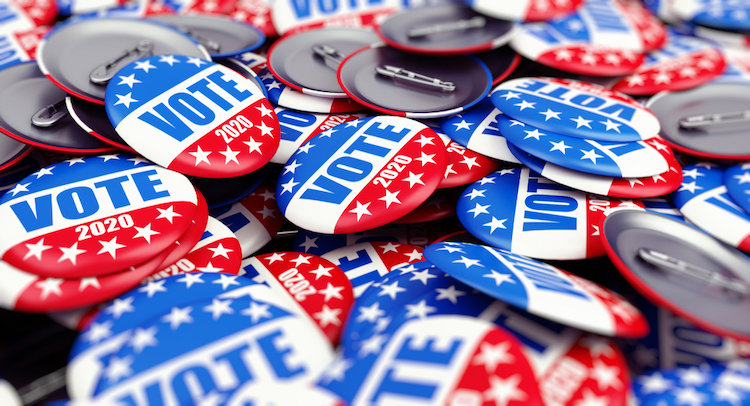Dec. 8 'safe harbor' deadline is a critical date in nightmare election scenarios

Image from Shutterstock.com.
Delayed election results could lead to a constitutional crisis that involves the Electoral Count Act of 1887 and differing vote certifications.
The law sets two deadlines for states, report the Atlantic (here and here), CNN and the New Yorker. One date, “the first Monday after the second Wednesday in December,” is when the electoral college meets to cast ballots for president. This year, the date is Dec. 14.
The other date, which is six days before the electoral college date, is the “safe harbor” deadline for states to choose electors that they can ensure will be accepted by Congress. That date is Dec. 8 this year.
What if the votes are not counted by Dec. 8 because of delays from mail-in ballots, vote-counting disputes and recounts? And what if states, swayed by claims of vote fraud, decide to appoint electors that appear to contravene the vote count? Those are among the scenarios considered by the Atlantic, CNN and the New Yorker.
And what if President Donald Trump and former Vice President Joe Biden are ready to assume the presidency Jan. 20? That is the date that the Constitution sets for the new term to begin.
U.S. Sen. Marco Rubio, R-Fla., has proposed pushing back the safe harbor date in legislation introduced last month. But Congress has not acted on the bill, and some states put the safe harbor provision into their own laws, according to CNN.
According to unnamed sources who spoke with the Atlantic, the Trump campaign is discussing plans to bypass election results and appoint loyal electors in battleground states.
 Image from Shutterstock.com.
Image from Shutterstock.com.
“With a justification based on claims of rampant fraud, Trump would ask state legislators to set aside the popular vote and exercise their power to choose a slate of electors directly,” according to the Atlantic. “The longer Trump succeeds in keeping the vote count in doubt, the more pressure legislators will feel to act before the safe harbor deadline expires.”
Republicans control both chambers of the legislature in the top six battleground states—Arizona, Florida, Michigan, North Carolina, Pennsylvania and Wisconsin. In Arizona and Florida, the governors are also Republican. In the other four states, the governors are Democrats.
If a GOP-controlled legislature was to appoint electors for Trump, but the Democratic governor refuses to certify them, which decision would control? “No one knows” the answer for sure, according to the New Yorker.
The articles spin through other scenarios in which a state fails to submit a winner by Dec. 14, the House and Senate disagree on a challenge to state votes, Vice President Mike Pence decides which state electors are counted, and no candidate wins a majority of electoral votes after a state’s votes are discarded.
Rebecca Green, a professor at the William & Mary Law School, told CNN that the Electoral Count Act “is tremendously complex and leaves a lot of gaps.” It could be up to the courts to sort it all out, she said.
Richard Hasen, a professor at the University of California at Irvine School of Law, sees the possibility of “a protracted postelection struggle in the courts and the streets if the results are close.”
“The kind of election meltdown we could see would be much worse than 2000’s Bush v. Gore case,” he told the Atlantic.
Write a letter to the editor, share a story tip or update, or report an error.


